The LDS Women Project: Their Story is Our Story - Its Beginning
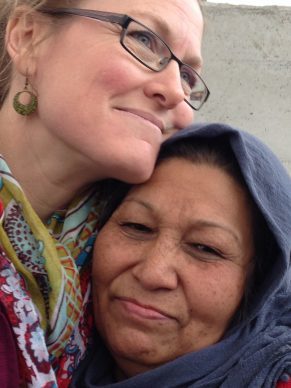
Interview Production by Lydia Defranchi
The following comes from an interview with TSOS President, Trisha Leimer on June 12, 2017 with The Mormon Women Project
Tell me how you first got involved with refugees.
We had lived in Frankfurt for about 15 years, and my daughter was going to school there. We received an email during Fall break informing all of the parents that the school gym was no longer going to be used for sports, but that it was going to be converted to an emergency reception center for refugees. This was in the Fall of 2015 when these huge waves of refugees were pouring over the border into Germany. They let us know that there was going to be an information evening and that we could go to the city hall for a meeting with the mayor to talk about it.
So we went, my daughter and I, and I walked into this auditorium with 400 people in attendance. I was sure that these German parents were going to pound the table and say, “Not our school! And not on our campus!”
But no, it was just the opposite. It was amazing to me that everyone was really excited about it. They had microphones set up in the aisle, and people lined up one after the other and said, “Well, is there anything we can do? I’m really worried that this isn’t going to be good enough for them. How are they going to be comfortable in this gym?”
The way the German government handled the sudden influx of people into Germany was to just farm them out at the border to different states, and then the states would farm them out to counties and then these counties would have to figure out where to house them… sometimes with just a few hours’ notice. Abandoned warehouses, hospitals, military barracks, school gyms and even churches were quickly converted into refugee centers. And that’s where I started—I would drop off my daughter every Wednesday and then park and go into the gymnasium.
I taught German. I brought knitting supplies and we would go back into one of the changing rooms which they had converted into a prayer room/activity room. I’d sit on the floor or on benches with all these women, crocheting and talking. We couldn’t really understand each other, but we communicated pretty well using gestures and smiles. People would come in and pray next to us. I learned a lot those first four months that I was there.
Then they closed it down and moved these refugees to more permanent housing, about an hour away from us – a tent city camp that fluctuated between 500-800 residents. They wouldn’t let us in there; we could only go to a tent outside the camp where they would have social activities. The sister missionaries from the European offices had been helping me gather yarn and things, and they asked if they could come, which they did. They’re amazing, and actually won an award for exemplary volunteer work.
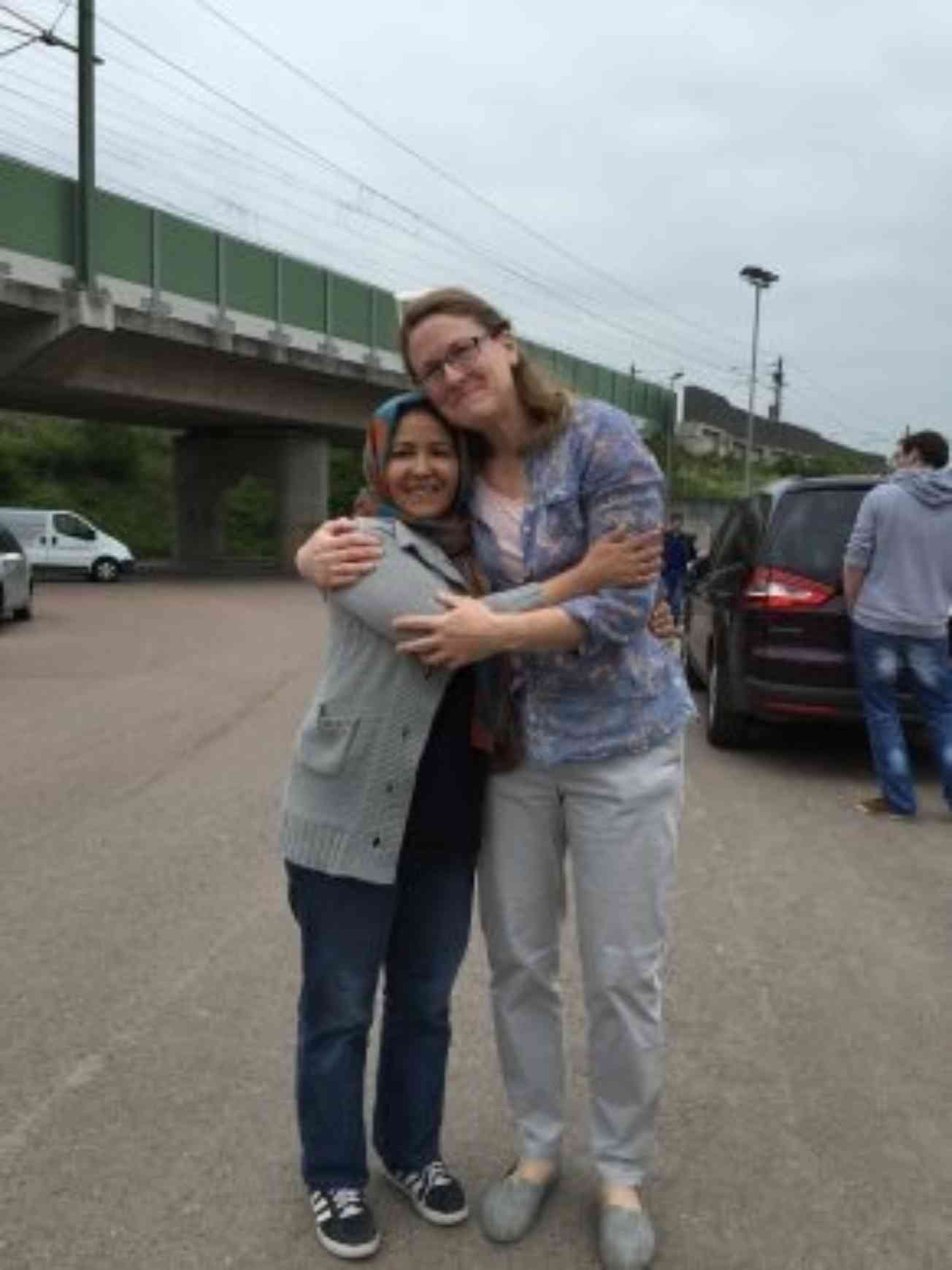
You see a lot of news reports about people who are not too thrilled about what’s going on in their backyard. You went into it with this expectation that people would be unhappy about receiving refugees, and then you were just blown away by their reactions. It sounds like there are a lot more people who have wanted to help than have been opposed to it.
I’ve been amazed. I’ve thought a lot about this because of my experience moving to this country as an American. I was told Germans can be very cold. I am married to one, but he had been in the States for many years already when we met and he was kind of a Yankee already. So it was really hard moving here. It’s hard to get through to their soft middle: Germans are kind of like an egg – maybe hard on the outside, but soft in the middle if you can get in. I’ve really held a lot of respect for the German people. I love them. And I’m really glad I live here, but I was really surprised because I honestly expected that they would be more opposed than they were.
I started having conversations with people, and I noticed as I was going into these camps that a lot of the German volunteers were older. They were in their 60s, 70s, retired. And they were so sweet with these people! They were super patient, and outside of the camp they would drive refugees to different offices to get paperwork or doctors’ appointments, and just started taking people under their wings. I asked the volunteers about this and they said, “I saw these pictures of people walking on the road along the Balkan Route towards Germany,” and it took them back to when they were young, just after the war, when they had to leave the Eastern areas of Germany, Poland and some other regions. They had to flee overnight because the Russians were coming. They left with nothing – usually their fathers were still gone or dead and it was a mother and children walking with just what they could carry. And they were given a space in a barn by a farmer or a basement apartment. They saw themselves in these refugees.
These people that I’ve found to be some of the toughest people to get to know, and some of the hardest people – they are kind of crusty, because they’ve been through a lot – they were the ones who really reached out. It just melted them. It’s amazing how a situation like World War II and all the bad things that happened there could prepare a country to do what they’re doing right now.
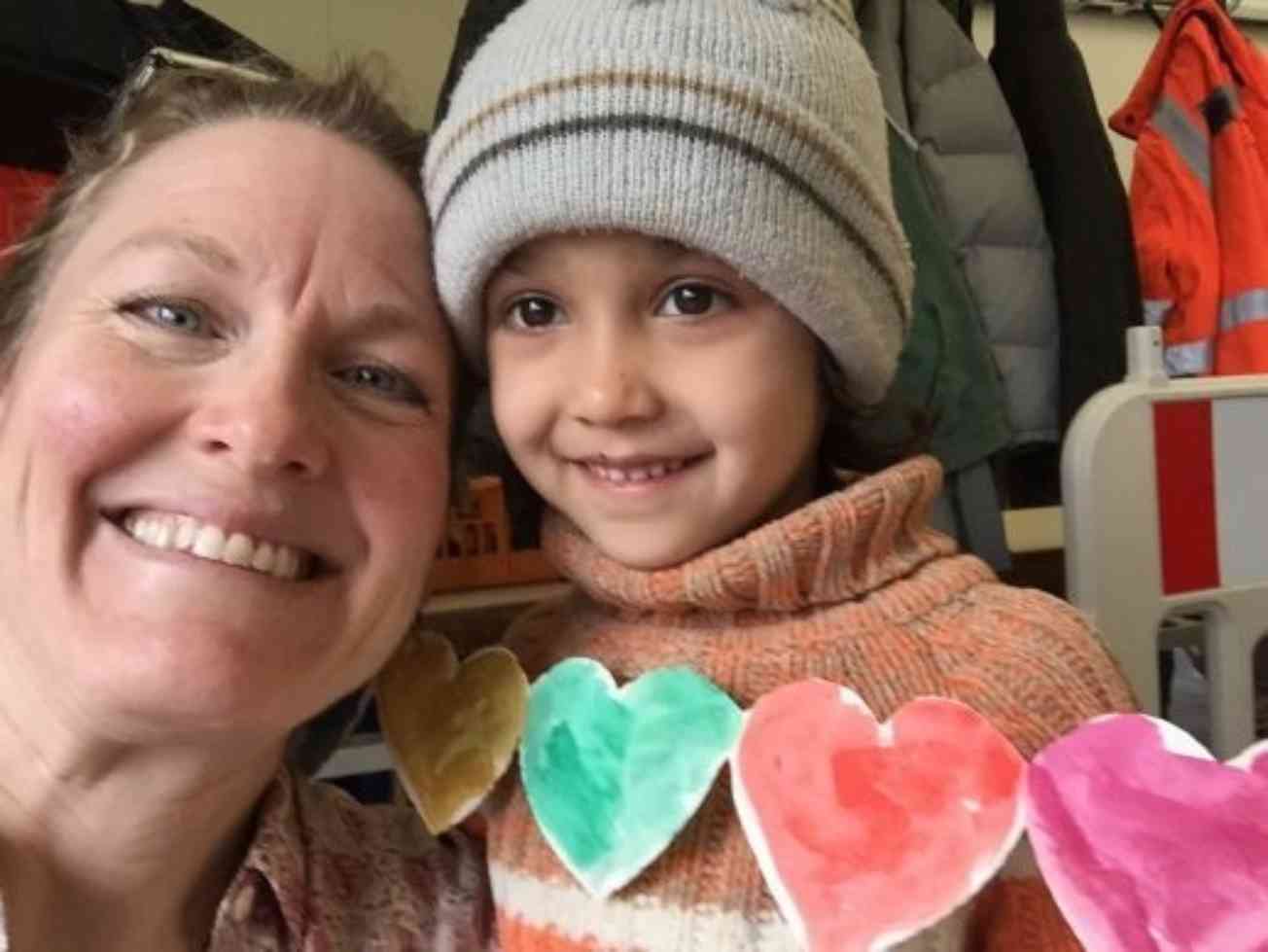
What have been some of your more impactful experiences volunteering in refugee camps?
Actually, most of the people that I work with aren’t in a camp now. So, for instance, last Tuesday I went to a lawyer with a family from Afghanistan who just received their answer from their interviews for asylum. Each person over 18 gets an interview. They wait usually about 7-8 months before they get interviewed, and they’re super nervous on that day. They go in and tell their story about why they can’t go back to their home country, why it would be dangerous for them, why they’re seeking asylum. The German government provides them with a translator and somebody who asks the questions and records the interview. And then the recording is sent to a committee that decides whether or not this person has grounds to receive asylum and is truly a refugee.
As a policy right now, most of the Afghans are being denied asylum, which just scares them to death because they face being sent back to the country they fled from. It’s so awful. Most of the TSOS interviews we’ve done have been with Afghans. If you read any one of them, on anyone’s scale on any level, they should not go back. But the German government for political reasons has decided that Afghanistan is a safe country and they’ve made an agreement with the Afghan government to pay to help reestablish these people in their home country. Well, you know they’re never going to see that money.
So they get this yellow letter in the mail, finally after a year, telling them they will be shipped back to the country they left in desperation, and they panic. They call, and they say “Trish, we’ve got 2 weeks to file an appeal.” So, we have to go find a lawyer and ask them to represent them, and then file an appeal, and pay more than €1000, and then the government cannot ship them out until you’ve been given due process. So I did that on Tuesday. Then on Friday I went to visit a woman I met right in the very beginnings in that gym. She’s from Aleppo, Syria. She had been living in a house with 25 other women and children. They were stacked in rooms, 5 people to a room. And then there’s a whole level with just men. It’s really bad. It’s just a bad situation. And she’s been in there for about 5 months. But she found a new apartment, so we went there and I brought some donated furniture. People give me things all the time – my garage is full.
We drove back to her house, we had tea in her little room and celebrated her birthday. She talked about her family and how she misses them. She has three sons who are still in Afghanistan with her husband, teenage boys. She has been given asylum but it’s only for one year, and then they will reopen her case and see if she’s integrating, if she’s trying to learn the language. She has to show that she’s making it and being a productive citizen.
That’s kind of what I do: I help them with integration, I help them with paperwork, with legal work, with furniture, with moving. I let them cook for me now that they’re not in the refugee camps … hosting is a big deal in their cultures and they’re really proud when they can invite us over and cook us a meal, even though we eat on the floor, or they cook on the floor.
What was the launching point for Their Story is Our Story: Giving Voice to Refugees (TSOS)? What prompted you to start this organization?
That was amazing. We were going to the camp I mentioned. My good friend, Melissa Dalton-Bradford and I had been working in the gym together, and we decided we’d just keep going to the people we knew. [Editor’s note, Melissa Dalton-Bradford is co-founder of TSOS, and gave an interview for MWP in 2013]. We would drive an hour once a week to this place and then drive an hour back, and we’d have these conversations on the way – it was wonderful, we miss it. And we started talking about recording these stories and how unfair the things were that we were hearing from the U.S. – it was all during the Trump hype, during the election year. I was just amazed at the misconceptions and the false information people were getting. I knew that if they could spend ten minutes with one of these people, they would change their minds. I just knew that.
One day, when this was really, really pressing on me, I received a message from a good friend from college. She was part of a wives-of-bishops Facebook page and someone [Lindsay Silsby] had posted on that page that she was a photographer in London and that she had been having this recurring dream about going with her mission friend, Garrett [Gibbons], who was a filmmaker, to the mainland to help refugee children. That same day I got another email from Liz [Thayer], who I had known here in Frankfurt. Both came in on that same day, and it was an answer to prayers. So, I said, “Well, I will follow this, Heavenly Father, if this is what you want.” It just seemed like a pretty amazing coincidence to me.
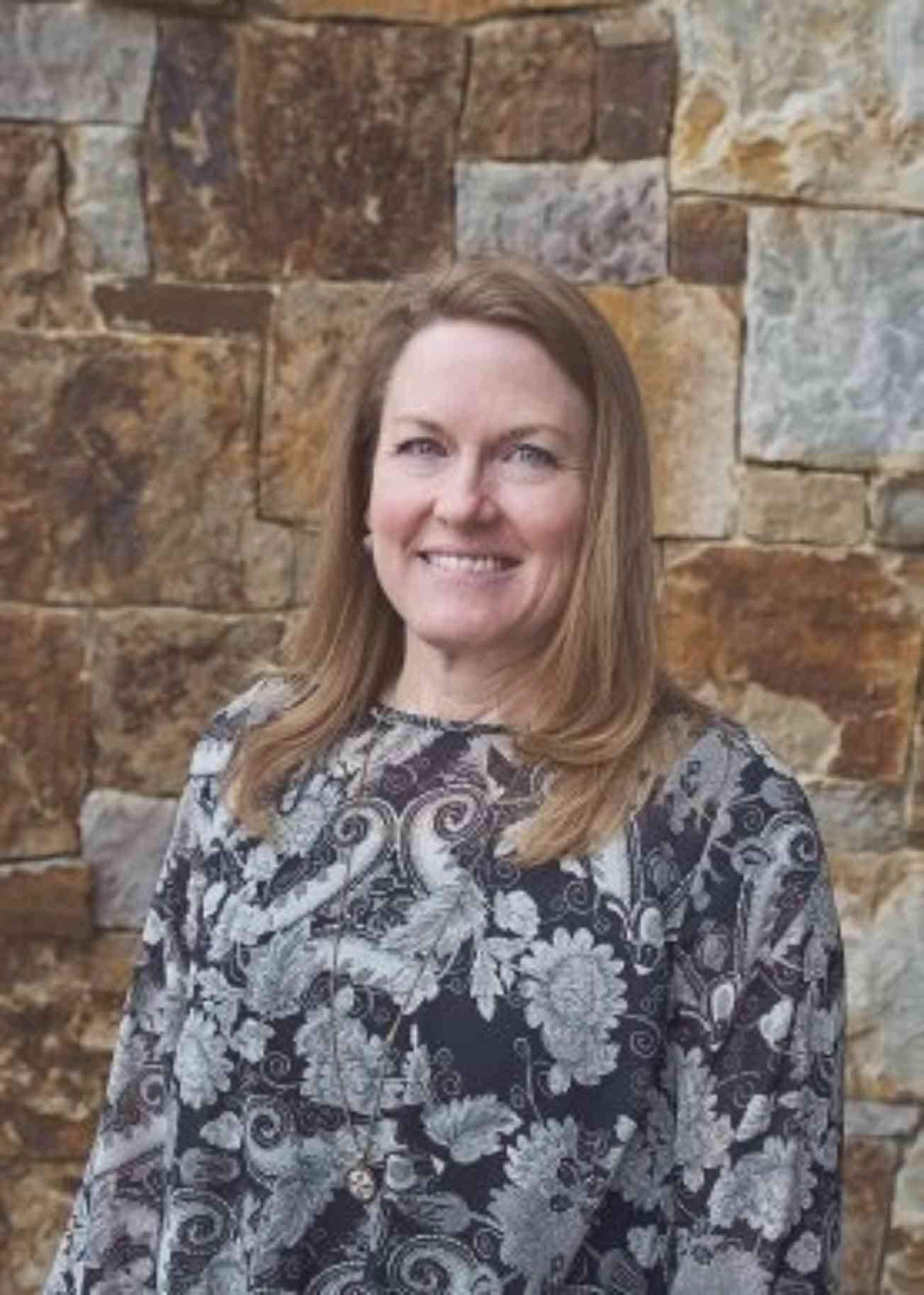
Tell me a little bit about the name, “Their Story Is Our Story,” and your hopes for the organization. You’ve mentioned that hearing people’s stories can change minds and soften hearts.
Definitely, that’s the main goal: to help people have a balance to what they hear in the press and hear in the U.S. Here [in Germany] also, there’s definitely a pendulum that’s swinging back the other direction. A lot of fear here as well. So, we’re trying to dispel the fear, dispel the misunderstanding by just letting them tell their story. We found that art was one of the best ways to do it. I think the pictures and the photographs, the paintings and the video of them, it just really lets them tell about themselves in a way that speaks to people.
Most refugees don’t readily speak about their past. They don’t talk about their experiences and the things that they left behind, because they’re all in the same boat if you think about it: they’re all suffering. And they’re very closed and mistrustful because of their past experiences. But it was absolutely amazing! In the camp in Greece, every tent stood in line to sit down in front of our cameras, and talk about their experiences! Then they would stand up one after the other and just take a deep breath, and it was like a cleansing thing for them. “[Deep breath] I feel so much better, thank you. Thank you for listening.” We hadn’t expected that at all. We were thinking we would really have to get their trust before they would open up. It’s been an incredible thing to witness.
We stay in touch on a personal level. Because I’m here, I can help them also. There’s a lot of contact. It helps them just to be in contact with somebody – to let them know somebody cares.
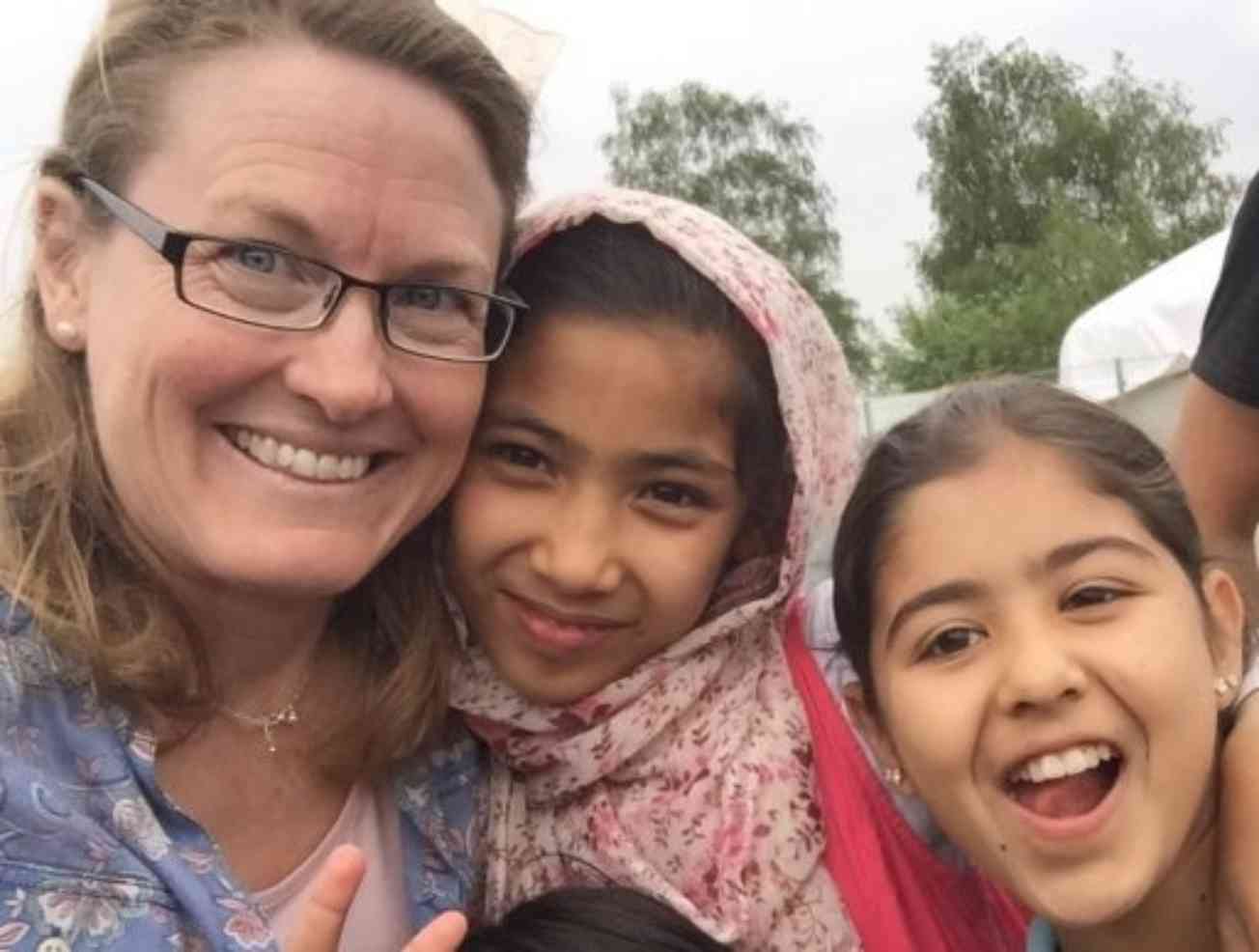
Some of the stories that you’re helping to tell at TSOS are pretty dark. They’re heartbreaking at times. How do you, personally and as an organization, find hope as you’re faced with this flood of human suffering?
It’s hard. There are definitely days where I go pick up my husband from work and I’ll just say, “This was a heavy day.” But the blessings far outweigh the difficulties! The greatest blessing is witnessing the dignity and strength of these my brothers and sisters. I was thinking about this today in church, that these people are so resilient. They’re thankful for everything. They get frustrated and impatient, and they have a lot going on in their heads. They’re dealing with a lot of emotions and a lot of leftovers from what they’ve experienced, of course. But I have so much respect for them.
As I get their trust and as we establish relationships, I’m getting to know them on different levels and it’s very rewarding. It’s difficult and sometimes just like being a mom. You have to say, “Well, that doesn’t work,” or, “You need to change, this isn’t going to help you,” or “That expectation is unrealistic. Take a look at what’s happening and think about it.” But for the most part, I come away thinking “Wow, these people are amazing.” I’ve seen things I never thought I would see, heard of things that I never thought I would – normally in life you’ll meet maybe one or two families that have experienced this magnitude of tragedy, but I’ve met dozens.
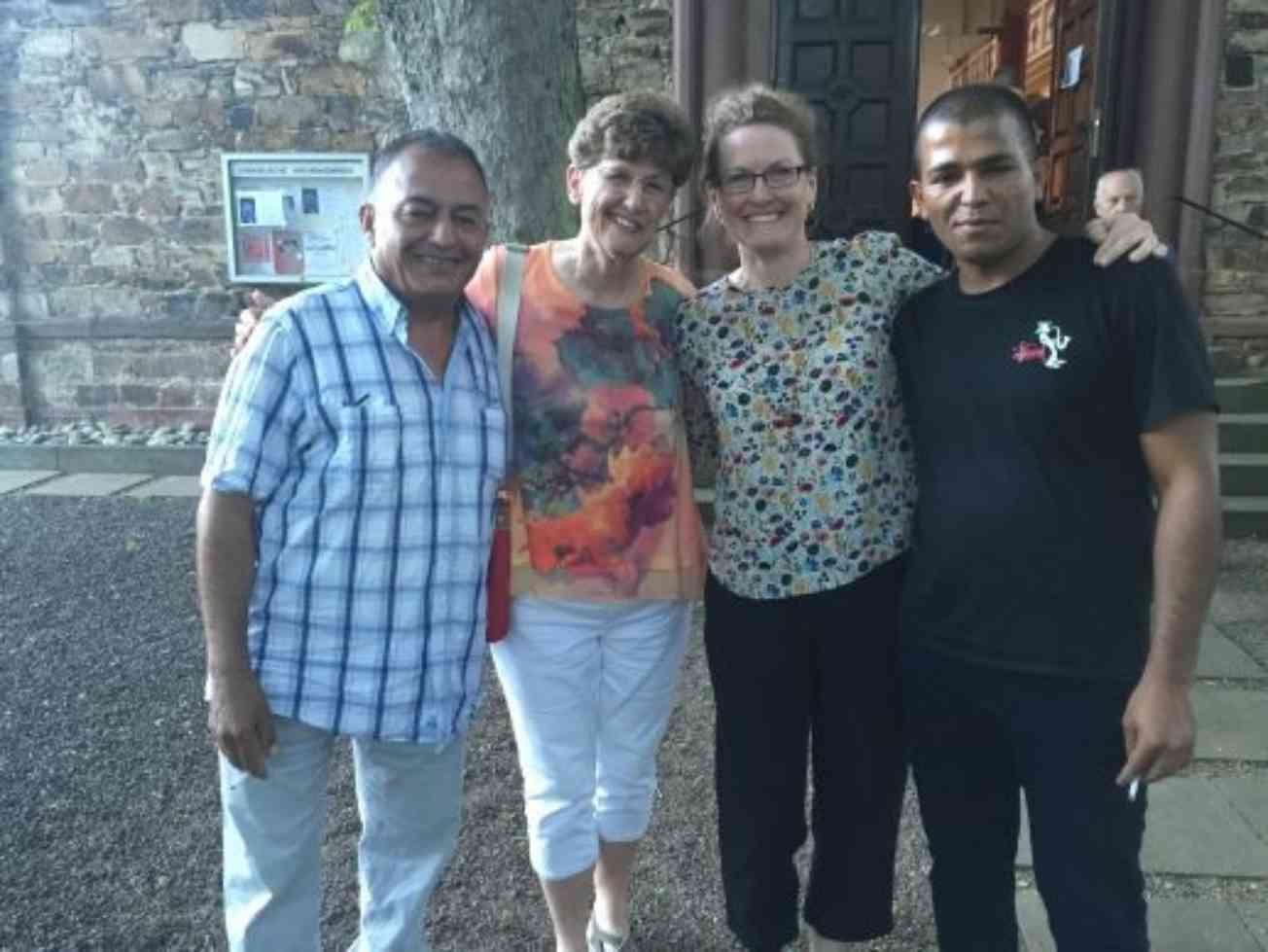
What have you learned about people’s relationship, and your relationship, to God through your experiences with TSOS and helping refugees?
The one thing that comes to mind is my view of Christ-like love. What does it mean to have charity? I see the Good Samaritan and that whole parable in a completely different light. You have different kinds of giving going on here. You have donations, where you give money, you give socks, you give wool, or yarn. And that’s nice, and then I went to the next level, and I would take that stuff and I’d walk into a camp, and I was like Santa Claus to them. They’d say, “Trisha! Trisha!” and they’d give me hugs, and they’d take my stuff. And that’s really nice. It’s very rewarding, and it’s kind of selfish, although it does also help them. It’s important. But I think that the most difficult is probably the most rewarding. And that’s when you really – like the Samaritan did – you pick them up, you carry them with you. You bring them into your lives.
You have to go through some training in order to get into some of these camps – and the people there gave us a list of things you do, and things you don’t do. And I did every one of the things they said you don’t do. “You don’t give them your number, you don’t let them in your home, you don’t ask them about their experiences, you don’t talk to them.” It took all the compassion out of it! It was very much a business/volunteer type thing. And I couldn’t do that. I just couldn’t. And I’m glad I didn’t, because this is how I’ve really been able to help them.
They say over, and over again, “I want to feel like I’m human. I want people to know that we’re humans just like you,” all they want is a peaceful place to live. “A place where we can work and contribute and do our thing,” and in order to get that, it’s pretty much out of their hands. They have been thrown into a situation where so much is out of their control, and they need people to take care of them. The best way for me to take care of them is to help them take care of themselves. To help them learn a language, help them learn how things work here, go to the grocery store, show them where things are, tell them what things are called, help them get into the schools, help them find work. All of that. And that’s what the Samaritan did. He didn’t donate. He didn’t leave the guy on the road and go back to his ward and say, “Ok, we really need to figure something out here for this guy.” No. He picked him up, he took him on his donkey. He took him to a place where he could help him. Made sure he was safe, made sure he was taken care of, and made sure that he was emotionally taken care of. I think that’s what I’ve learned.
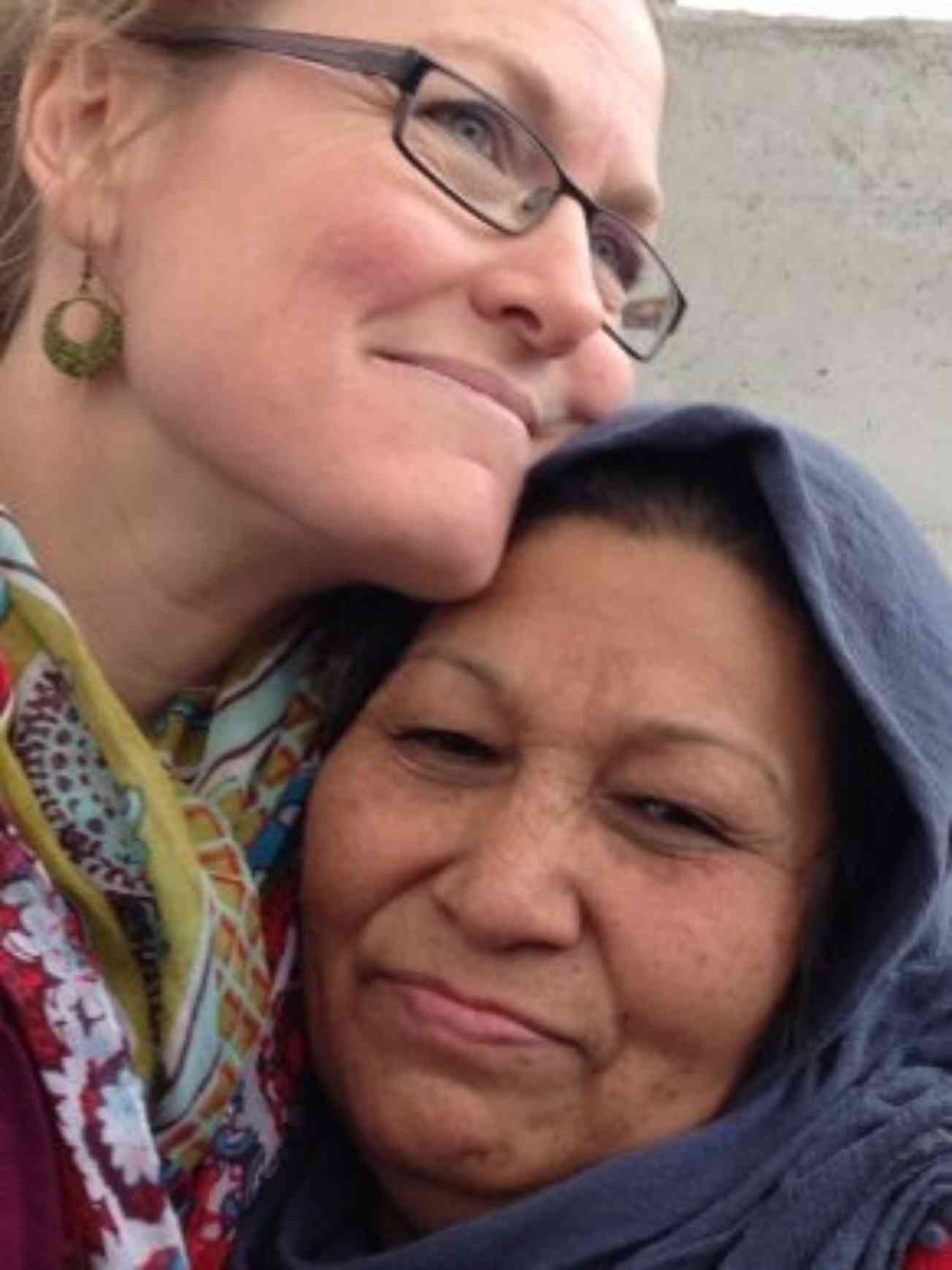
I see the Lord’s hand so clearly in this migration of so many, from lands where they had no chance to hear the Gospel to places where they can. And their tragedies and suffering have brought their hearts to a place where they are open to it. It is not by chance that our family is here right now, and I feel our backgrounds and our own experiences as foreigners here help us to identify with them, to show them meaningful support. I see it as such a pivotal time and a fulfillment of prophecy.
When I read Mormon’s writings in the Book of Mormon now, I see it through the eyes of my displaced friends from the East. Mormon says he has seen our day and is writing to us. I wonder if we aren’t a bit prideful in thinking he is referring to western society. When we say that Moroni saw our day, and that Mormon was speaking to us, I always pictured them seeing wide streets, white picket fences, green front lawns, traffic, big cars and Walmart. Now I am wondering if the war chapters weren’t written for the millions of people who are experiencing those very same atrocities today, and if Ether didn’t perhaps see minarets and people in headscarves eating falafel. And all of the water crossings to a promised land, the tree of life… these all have very deep, real meanings for these people. Perhaps Mormon took the trouble to write about this war and destruction because he saw the terrible destruction taking place today and knew his experiences would benefit them, that they would find comfort and strength and would relate to Mormon and his son, Moroni and all they witnessed and went through.
There is no doubt that the Book of Mormon is shining forth and pulling them in. In fact, Isaiah prophesied of this very thing. It is amazing how he pointed to the very areas where these people are coming from. These are areas where our missionaries cannot yet go, but here they are, coming to us by the hundreds of thousands.
This situation really isn’t so different from the Anti-Nephi-Lehis having to flee from their brothers, the Lamanites, in order to save their lives. The Nephites agree to give them an entire city and the lands around it, and they agree to protect them while respecting their covenant not to take up arms.
This is a time in the world’s history when 60 million people are fleeing from people who want to kill them. They are at the mercy of those lands to which they are fleeing. The only difference is that they have no advocate like Ammon or the sons of Mosiah to speak for them. We are being asked to make room for these people, if not literally, then figuratively, as the refugees stream into Europe and into Germany and ask for protection. Most are eager to become active, contributing citizens and do their part. Most did not want to leave – most had beautiful homes, good jobs, were educated and loved their lives. That was taken away from them in the last several very violent and destructive years. We need to read this part of the Book of Mormon again and take a look at the way the Nephites handled it.
Melissa once commented that we humans connect on our broken edges. Our refugee friends have been through so much, and many are broken. Something happens when we reach out in love and connect. When we allow ourselves to mourn with them and feel with them. Even when we can’t speak with each other, even when I can’t even imagine what they have been through, even then – love connects us and something happens. Those broken edges really are what it’s all about. What we do with the edges when we are broken, the method we use to patch them up, speaks volumes about who and what we are. A loving, reaching human connection along those fissures is extremely powerful, even celestial.
At A Glance
Name: Trisha Leimer
Age: 48 Location: Frankfurt, Germany
Marital History: Married since 1989 to Axel H. Leimer
Children: Stefan (26) Jessica (24) Christian (21) Aki (19) Natasha (17)
Occupation: Child Care Assistant at local grades school, refugee volunteer
Convert?: Born in the Church
Schools Attended: BYU, BYU-Jerusalem
Languages Spoken: German, English
Favorite Hymn: Come Thou Fount of Every Blessing
Website: www.tsosrefugees.org
Official Statement on the Detention of Refugees and Ongoing Community Violence
With another death in Minnesota and continued violence toward individuals and groups standing up for their communities, we acknowledge the profound fear and uncertainty people are feeling--not just locally, but across the country.
On top of this, there are reports that refugees invited and admitted to our country through the U.S. Refugee Admission Program are now being detained, meaning that our new friends and neighbors feel that fear most acutely.
Refugees have already fled violence and persecution once. They came here legally, seeking safety. In moments like these, we reaffirm our commitment to building communities where refugees and immigrants can live without fear. Where they can go to work, send their children to school, and build lives of dignity and belonging.
We call for due process, accountability, and humanity in all immigration enforcement operations. We call upon our leaders to demand the demilitarization of our neighborhoods and cities. And we call on all of us to continue the work of welcoming and protecting those who have been forcibly displaced from their homes.